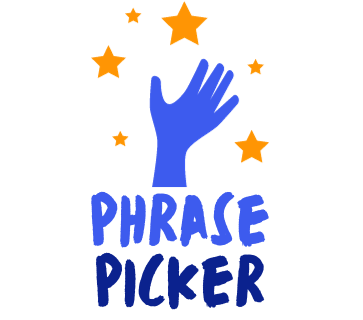Introduction
The phrase ‘for your reference’ is a commonly used term in professional and academic settings. Acting as a guidepost, it directs the reader to relevant information or data points that substantiate the sender’s point of view, or aid in task completion. This article aims to delve into the use of ‘for your reference’, its contextual usage, and explore equivalent phrases. By understanding these aspects, one can elevate their communication skills, ensuring that the reader is not only informed, but also engaged and inspired.
Key Takeaways
- Understanding the contextual use of “for your reference” can enhance the clarity and precision of your professional communication.
- For your reference is a polite and respectful phrase used to indicate that the information provided is supplemental or offered for additional insight.
- Alternatives to “for your reference” include phrases like for your consideration, for your review, or for your information, each with subtly different implications.
Other Ways to Say “for your reference”
- For your information
- For your perusal
- For your review
- For your consideration
- For your understanding
- For your attention
- For your awareness
- For your examination
- For your inspection
- For your enlightenment
- For your acknowledgment
- For you to see
- For your observation
- For your recognition
- For your comprehension
For Your Consideration
The phrase ‘for your reference‘ is commonly used in both casual and professional communication to provide additional information or attachments that might be helpful or necessary for the recipient. However, in some formal contexts, alternatives such as ‘for your consideration‘, ‘for your perusal‘, or ‘for your review‘ might be more fitting. For example, if you are sending a document that requires the recipient’s feedback or decision, ‘for your consideration‘ would be a more appropriate choice. Similarly, ‘for your perusal‘ would work best when you’re providing information for reading and ‘for your review‘ when asking for evaluation. The choice of these more formal phrases denotes your respect for the recipient’s time and role, making your communication more professional and nuanced.
Dear Sir/Madam,
I hope this message finds you well. I am writing to provide the report which you requested from our last meeting. This report encapsulates all the key findings and recommendations for our action plan.
As an attachment to this email, you will find the document provided strictly for your perusal.
Feel free to reach out if you have any questions or require further clarification on any aspect of the report.
Best Regards,
[Your Name]
How To Answer Formal
For your reference is a phrase commonly used in professional or formal communications. It is primarily utilized to provide additional information that would aid the understanding or fulfillment of a request. Responding to this phrase just requires acknowledging receipt of the information provided. For instance, a simple ‘Thank you; I have noted the information‘ would suffice. Alternatively, a more detailed response indicating that you have digested the information could be given. This might look like this: ‘Thank you for the additional data; I have reviewed it and understand the metrics as presented‘.
This phrase is particularly useful in a multitude of formal contexts. Whether you’re in a business setting sharing insightful reports, or in academic circles sharing relevant research data, ‘for your reference‘ serves as a convenient bridge for information transfer. You could use it while forwarding a previous project to a colleague as a guide, ‘Here’s the report of our last strategic meeting for your reference‘. Or perhaps when a student is seeking consultation about their research topic, a professor could respond, ‘This list of books might help for your reference‘.
- Formal Examples:
- For your reference, I have attached the finalized financial reports for this quarter.
- Here’s a breakdown of our action plan for your reference.
- I’m forwarding our project schedule for your reference.
- The linked articles provide the framework for our discussion, for your reference.
- The detailed brief regarding your task for this week has been sent for your reference.
Dear Reader,
Your message noted with ‘for your reference’ has been received and understood. As an essential part of our communication, I appreciate your effort in making your message clear and concise.
In response to your reference provided, I have reviewed the material and found it quite informative and relevant to our overall context. I would like to express my gratitude for sharing such valuable information.
Should you have more references or material of this nature, please do not hesitate to share it. I am looking forward to our continued productive exchange.
Best Regards,
Your Name
Just So You Know: An Informal Spin On For Your Reference
If you’re hoping to strike a more casual tone with whoever you’re communicating with, there are several fun and friendly variations of “for your reference” that you might consider using. Phrases like just so you know, check this out, or even here’s the scoop can keep the conversation light and relaxed, while still ensuring you share necessary information. Offering reference points in a more informal way can help maintain a congenial atmosphere, particularly in less formal settings or interactions.
Hi there,
Just following up on our conversation earlier about the project details. I’ve attached the project guidelines and objectives just so you have it on hand.
Let me know if you have any questions or if there’s anything else you need.
Best,
[Your Name]
How To Answer Informally
The phrase ‘for your reference’ is often used in both verbal and written communication to guide another person towards a source of information, a specific point of data, or a contextual base required for understanding a situation or message. In informal settings, the phrase may take on a lighter, more casual tone, while remaining helpful and directional. For instance, while chatting with a friend about a newly released movie, one might say, ‘Look up the lead actor, for your reference‘, to encourage the friend to gain further understanding about the topic at hand.
In similar context, consider an exchange between two colleagues discussing a work project on a casual note. One of them might say, ‘You can check out the last month’s sales report, just for your reference‘. In this situation, ‘for your reference’ is used to suggest an additional source of information, without making it a mandatory action item. The phrase carries an inherent flexibility enabling its use in myriad daily life situations, always with the intention to aid or clarify.
- ‘Check out this link, for your reference.’
- ‘Here’s the recipe I used, for your reference.’
- ‘I’m sending you the location on the map, just for your reference.’
- ‘Have a look at the event timeline, for your reference.’
Dear Jane,
I hope this email finds you well. Thank you for sending over the document for my reference. I’ve taken the time to look at it and I must say, it’s really insightful!
Just wanted to let you know, I found the references really helpful, so thanks for sharing.
If there’s anything else you think I should know or go through, please don’t hesitate to share it with me. Let’s keep this great team work going!
Best,
Mike
Is It Correct to Say “for your reference”?
The phrase ‘for your reference’ is typically used in business contexts, especially in emails or letters. Its primary intention is to guide the recipient towards certain information or to denote a point of relevance. The question remains: is it correct to say ‘for your reference’? The answer is a resounding Yes.
Typically, the phrase is neither considered rude nor excessively formal. Instead, it serves as an efficient shortcut to signal that the subsequent information is important for the reader to keep in mind. However, as is the case with any form of communication, tone and context are key. Though it is generally seen as professional and neutral, if used inappropriately, it can come off as condescending. It is thus of utmost importance to always consider the context in which you are using the phrase.
While ‘for your reference’ is widely accepted and will often be your safest bet, there are alternatives one can use, such as ‘for your information’, ‘for your review’, or simply ‘FYI’. Each of these tends to be a bit less formal and more appropriate for different situations – it all depends on the intended tone and goal of the communication.
In conclusion, we hope that this article has enlightened you to better understand the use and context of the phrase ‘for your reference’. It is our utmost hope that this phrase, which is an essential part of professional communication, is now more accessible and user-friendly to you. Remember, as with all aspects of language, practice and context are what matters.



